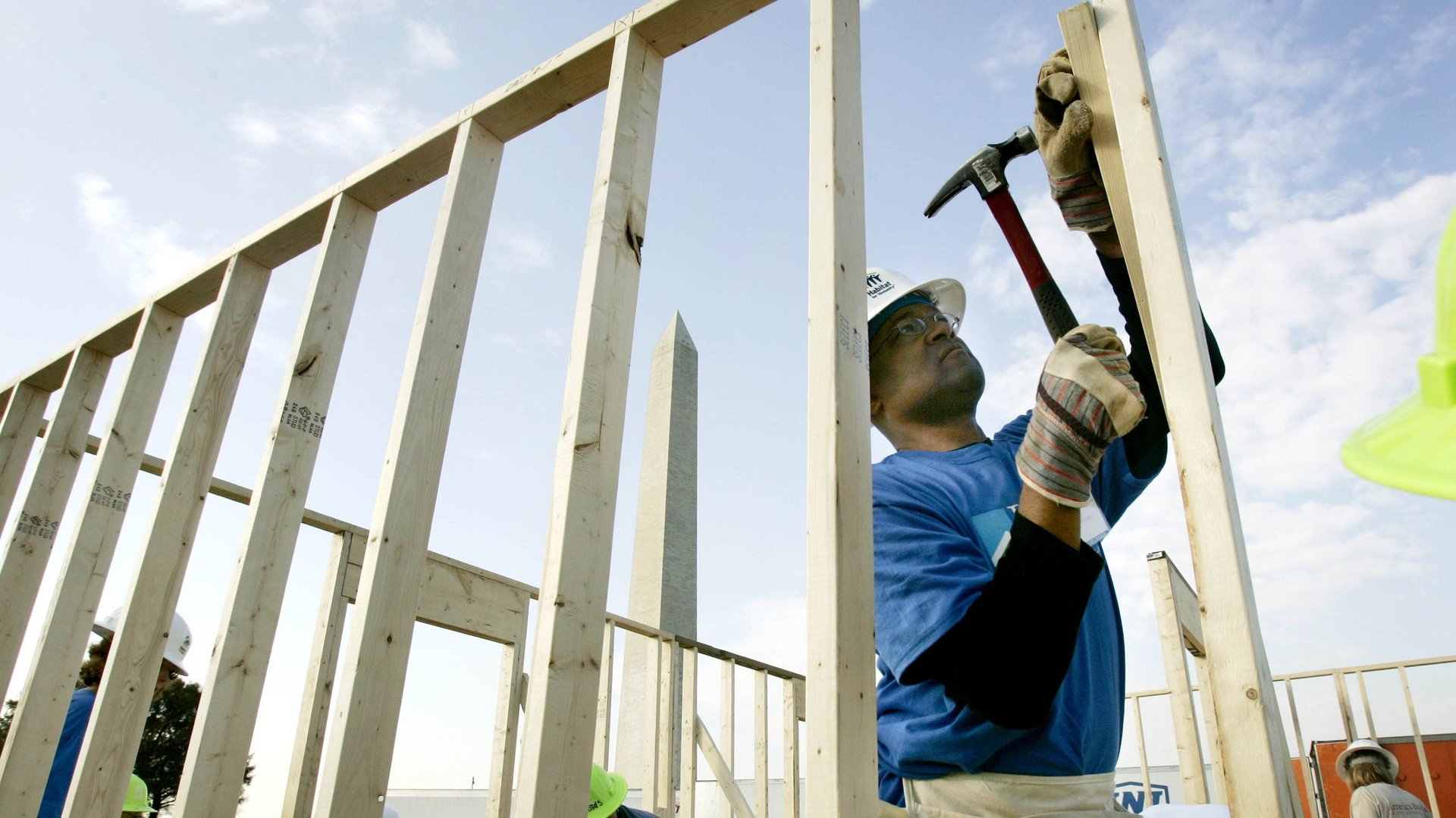MacKenzie Scott’s $436 million donation is a downpayment on US affordable housing
Philanthropist MacKenzie Scott is taking on the US housing crisis by giving $436 million to Habitat for Humanity, a non-profit building and financing homes for low-income households.


Philanthropist MacKenzie Scott is taking on the US housing crisis by giving $436 million to Habitat for Humanity, a non-profit building and financing homes for low-income households.
Habitat for Humanity International called the gift “transformative.” It will distribute most of the money to 84 US affiliates, and commit $25 million to advocacy work to promote policies that increase homeownership among Black Americans among other communities of color.
Scott’s donation, announced on March 23 is among the largest individual philanthropic housing efforts in US history, comparable to the $300 million in affordable housing philanthropy by Amazon itself.
The gift, in theory, could help fund the construction of more than 4,000 new affordable homes through Habitat for Humanity (the cost of a Habitat for Humanity can run about $100,000 to $165,000). It’s a significant number. Habitat for Humanity built or repaired homes for roughly 11,500 households in the US and Canada in 2021. But it only starts to address the magnitude of the housing affordability crisis in the US.
The overlapping housing crises in the US
What is generally described as the US’s “housing crisis” is really at least two overlapping challenges.
First, the US has a severe shortage of new homes for sale: at least 3.8 million more units are needed relative to demand, according to federal mortgage company Freddie Mac. That figure keeps rising as the pace of construction continues fails to keep up with the formation of new households. As a result, home prices have shot up, putting them out of reach for many would-be homebuyers.
Second, there is a 6.8-million-unit shortage of rental housing affordable for the lowest-income Americans, as wages have failed to keep up with housing costs in much of the country. Nearly a third of US renters are cost-burdened, meaning they spend more than 30% of their income on rent. The new home shortage makes this worse by leaving more people renting for longer, pushing up demand and prices in rental markets.
One response to these problems, as Habitat for Humanity advocates, is building more low-income housing. And Scott’s donation will help, marginally, add to this supply. But to encourage more supply, the US will need to work on multiple fronts at once: changes to land use laws, including zoning restrictions, standard lot sizes, and parking lot minimus, many of which are governed by local governments.
Scott’s donation will support some of these policy changes through Habitat for Humanity’s lobbying. In 2019, the organization launched its Cost of Home campaign to mobilize affiliate locations to lobby policymakers for policies (pdf) like land-use reform and voucher programs that improve housing affordability. Habitat for Humanity is just a small part of a larger US housing lobby of organizations and individual voters calling for reforms to housing policy.
Makenzie Scott’s net worth
Scott has given away roughly $12 billion since pledging to give away her money “until the safe is empty” in 2019. A variety of organizations dedicated to promoting equity in various areas of life—justice, healthcare, education, such as the Innocense Project and Planned Parenthood have benefited.
But her fortune is growing faster than she can give it away. A 4% stake in Amazon she received in her divorce from Jeff Bezos valued at $36 billion in 2019 has grown as the company’s value skyrocketed during the pandemic, and Scott is now worth an estimated $50 billion. Scott’s massive donation to affordable housing may be her first of many. But even dedicating her entire fortune to the cause would only account for a fraction of the national housing shortage.